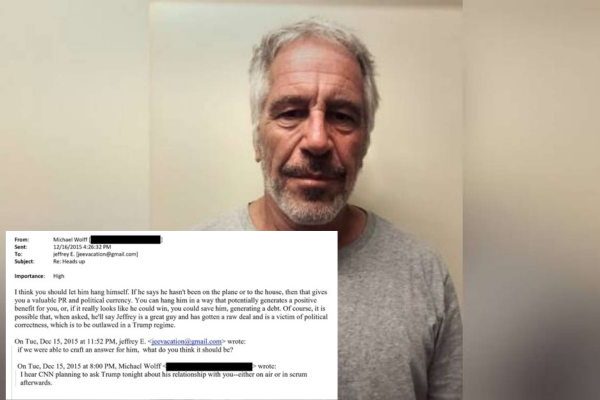Are Jeffrey Epstein Files Released by Democrats?
On November 12, 2025, Democrats on the U.S. House Oversight Committee released a batch of emails from Jeffrey Epstein’s estate that raise new questions about Donald Trump’s knowledge of Epstein’s criminal network. The documents include a 2019 email in which Epstein told author Michael Wolff that “of course he knew about the girls as he asked Ghislaine to stop.” Another message dated 2011 to Epstein’s associate Ghislaine Maxwell claimed that Trump “had spent hours at my house with” one of Epstein’s victims and that “he has never once been mentioned.”
Epstein Emails Alleging Trump’s Knowledge
The White House pushed back immediately, with press secretary Karoline Leavitt accusing Democrats of selectively leaking documents to “create a fake narrative to smear President Trump.” The anonymous “victim” referenced in the emails was later identified by the White House as Virginia Giuffre, who died earlier this year and previously stated she believed Trump was not involved in misconduct.
These disclosures are a major part of Democrats’ push for full transparency on Epstein-related files. They argue that the newly released emails highlight serious gaps in what the U.S. Department of Justice and other agencies have shared so far.
🚨BREAKING: Oversight Dems have received new emails from Jeffrey Epstein’s estate that raise serious questions about Donald Trump and his knowledge of Epstein’s horrific crimes.
Read them for yourself. It’s time to end this cover-up and RELEASE THE FILES. pic.twitter.com/A5XgOHj2Jq
— Oversight Dems (@OversightDems) November 12, 2025
Virginia Giuffre Cause of Death
Virginia Giuffre, a high-profile accuser in the Epstein case, died by suicide in April 2025. Her death adds heightened emotional weight to the documents released by Democrats. In the newly public emails, the unnamed “victim” referenced appears to be Giuffre, according to the White House. Authorities and survivors’ advocates say her death underscores the ongoing trauma and complexity surrounding the Epstein network and its implications for powerful figures.
The release of these new emails matters because it deepens the ongoing political and legal debate surrounding Jeffrey Epstein’s network and the potential knowledge or involvement of powerful figures, including former president Donald Trump. Democrats argue that the documents strengthen their case for full transparency, pressing for the release of all unclassified Epstein-related records that may still be held by the government. The White House, however, has dismissed the release as a politically motivated attempt to tarnish Trump’s reputation, insisting that there is no credible evidence linking him to Epstein’s crimes. Meanwhile, the inclusion of Virginia Giuffre’s name in the discussion—months after her death—has reignited emotional and moral questions about how the justice system and the media handle victims of sexual abuse. Her story continues to symbolize the human cost behind the headlines, underscoring why many advocates are calling for greater accountability and openness.


